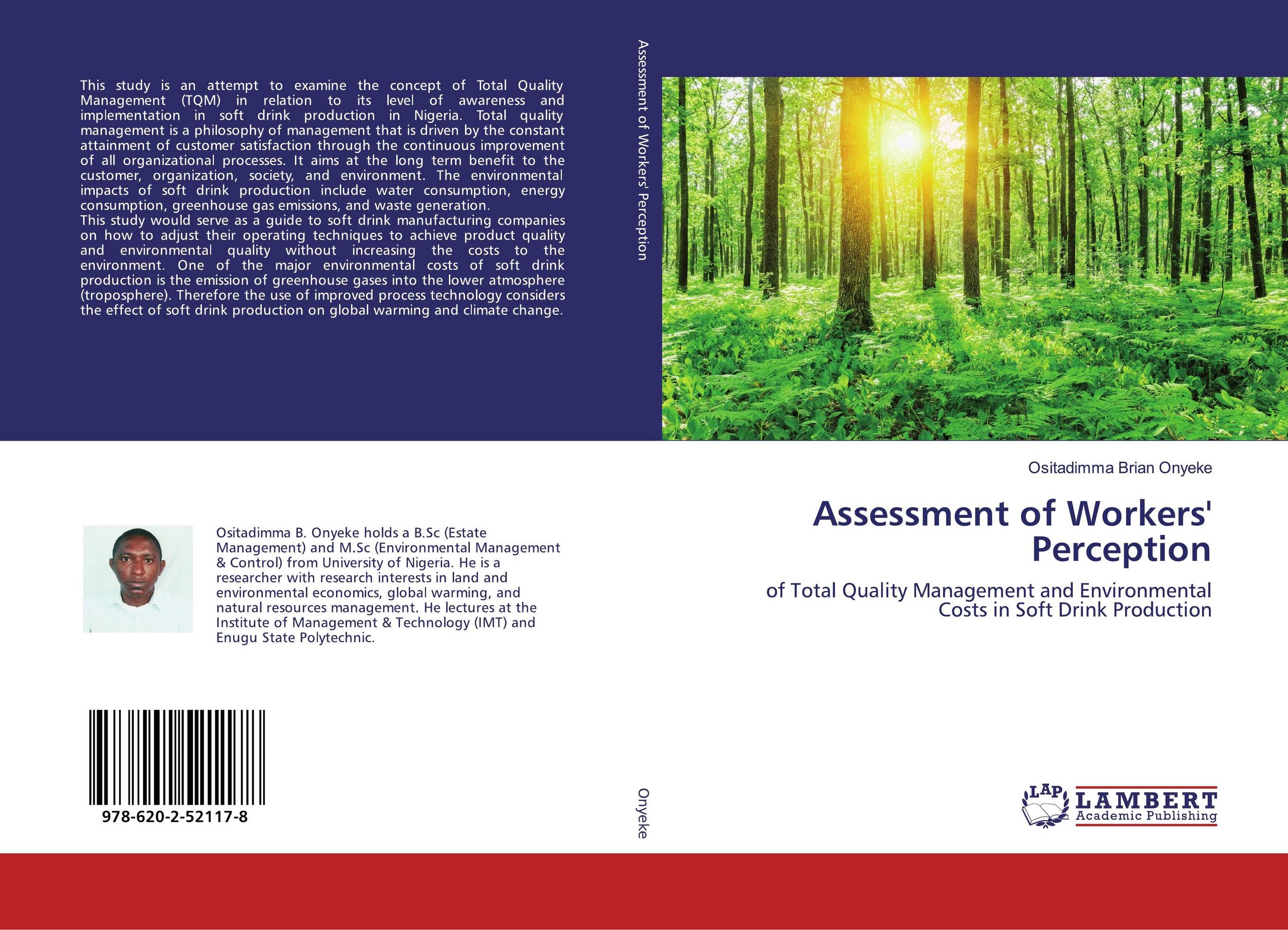| Поиск по каталогу |
|
(строгое соответствие)
|
- Профессиональная
- Научно-популярная
- Художественная
- Публицистика
- Детская
- Искусство
- Хобби, семья, дом
- Спорт
- Путеводители
- Блокноты, тетради, открытки
Assessment of Workers' Perception. Of Total Quality Management and Environmental Costs in Soft Drink Production

В наличии
| Местонахождение: Алматы | Состояние экземпляра: новый |

Бумажная
версия
версия
Автор: Ositadimma Brian Onyeke
ISBN: 9786202521178
Год издания: 2020
Формат книги: 60×90/16 (145×215 мм)
Количество страниц: 144
Издательство: LAP LAMBERT Academic Publishing
Цена: 36840 тг
Положить в корзину
| Способы доставки в город Алматы * комплектация (срок до отгрузки) не более 2 рабочих дней |
| Самовывоз из города Алматы (пункты самовывоза партнёра CDEK) |
| Курьерская доставка CDEK из города Москва |
| Доставка Почтой России из города Москва |
Аннотация: This study is an attempt to examine the concept of Total Quality Management (TQM) in relation to its level of awareness and implementation in soft drink production in Nigeria. Total quality management is a philosophy of management that is driven by the constant attainment of customer satisfaction through the continuous improvement of all organizational processes. It aims at the long term benefit to the customer, organization, society, and environment. The environmental impacts of soft drink production include water consumption, energy consumption, greenhouse gas emissions, and waste generation.This study would serve as a guide to soft drink manufacturing companies on how to adjust their operating techniques to achieve product quality and environmental quality without increasing the costs to the environment. One of the major environmental costs of soft drink production is the emission of greenhouse gases into the lower atmosphere (troposphere). Therefore the use of improved process technology considers the effect of soft drink production on global warming and climate change.
Ключевые слова: non-alcoholic beverage, energy conservation, quality management, Water consumption, Energy consumption, waste generation, green house gas emission, Economic efficiency



